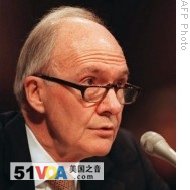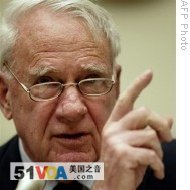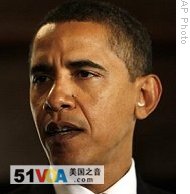Washington
13 January 2009
According to three former senior U.S. government officials, one of the central foreign policy questions facing the incoming Obama administration will be how to deal with a resurgent Russia.
Most experts agree that relations between Washington and Moscow are not good. Some analysts use words such as "poor," "strained" and "at a low point" to describe the relationship.
 |
| Former National Security Advisor, retired General Brent Scowcroft |
"Nothing really has ever resulted from it. I think we are in part talking past each other," he said. "I think we have never really sat down and developed a strategy for dealing with Russia following the end of the Cold War. The collapse of the Soviet Union has sort of liberated Russia from its history. Now I think it's struggling, in a way, to figure out who it is, what it is, where it's going. I think they feel that we have taken advantage of them in their period of weakness and confusion."
Former Secretary of Defense [1973-75] James Schlesinger agrees.
 |
| Former Defense Secretary James Schlesinger |
Schlesinger was referring to the August five-day war between Russia and Georgia - a conflict that cooled relations between the United States and Russia even further. Washington strongly criticized Moscow's massive military incursion into Georgia in response to Tbilisi's abortive attempt to take over the capital of the breakaway region of South Ossetia.
Experts say there are other major disagreements between Washington and Moscow. One of those is the Bush administration's backing of Georgia and Ukraine to become members of the North Atlantic Treaty Organization. Moscow is against that. President-elect Barack Obama has indicated he favors NATO membership - but only when those two countries are ready.
Another point of disagreement is the U.S. plan - also strongly opposed by Moscow - to put an anti-missile defense shield in Eastern Europe - 10 missile interceptors in Poland and a radar station in the Czech Republic. Mr. Obama's advisers say he supports the missile defense system, but only when the technology is proven to be workable.
 |
| Former US Secretary of State Lawrence Eagleburger (File) |
Analysts say despite the bad relations, Washington and Moscow are cooperating in such areas as fighting terrorism, energy security and nuclear arms control and nonproliferation.
 |
| Barack Obama talks to reporters in Washington, 12 Jan 2008 |
"That's one of the reassuring aspects of his approach to foreign policy, for me, that you maximize your chances of making progress if you're talking to people," he said. "In the deepest, darkest days of our conflict with the Soviet Union - or our confrontation with the Soviet Union - we talked to them. We had talks on the most sensitive issue of all and that is nuclear arms - and I think it helped a lot."
Many experts are calling for a summit meeting between President Obama and Russian leader Dmitri Medvedev in the early months of the new U.S. administration. They say such a meeting would provide a solid basis for improving a relationship that needs a positive jolt.